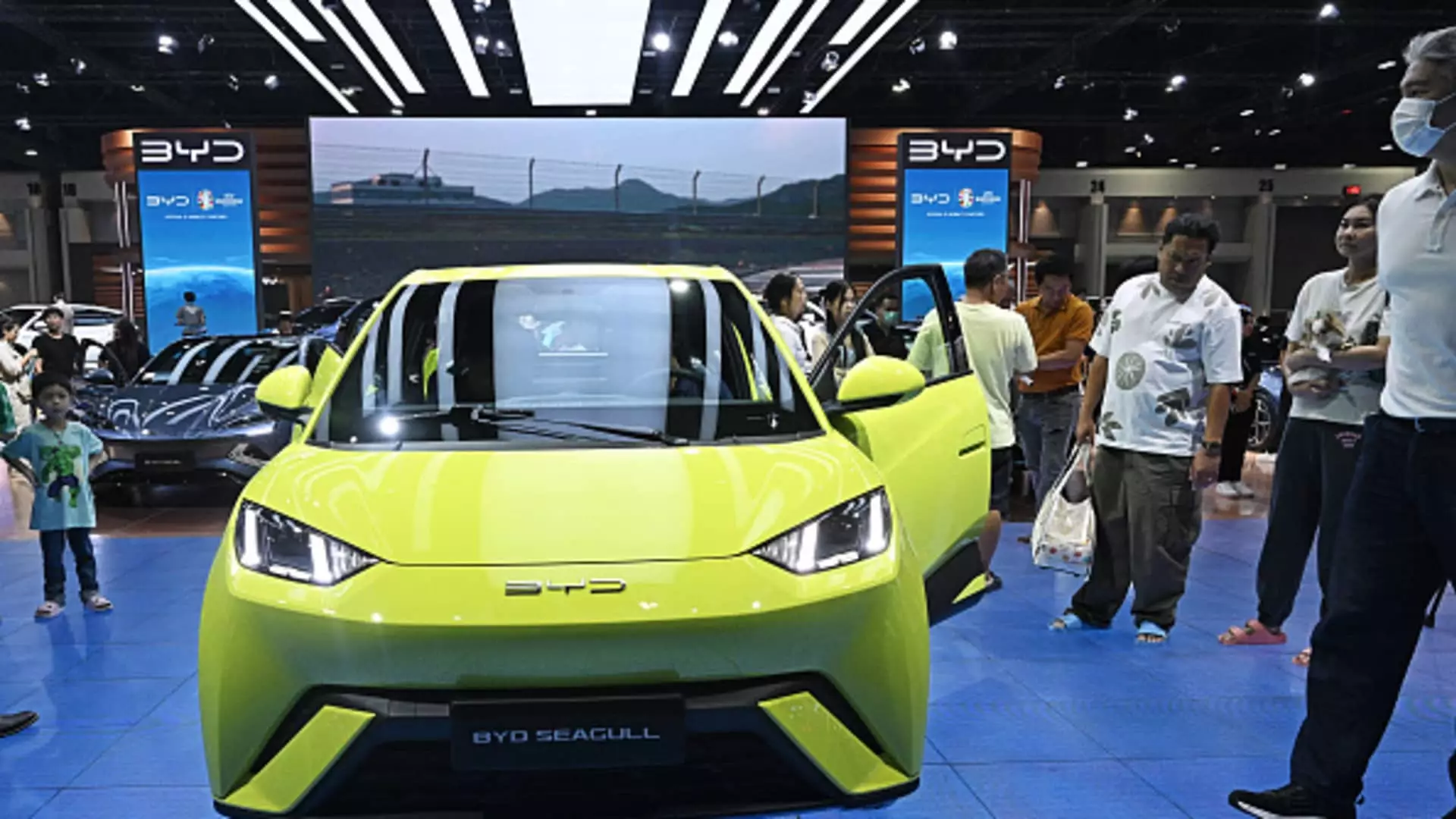The European Union is preparing to unveil its new tariff rate plan for Chinese electric vehicles in an effort to address the issue of low-priced, subsidized imports. This move comes as the EU aims to level the playing field for domestic electric vehicle manufacturers and reduce the economic threat posed by subsidized imports from China.
Citi analysts have suggested that the current 10% duty on imported EVs could be raised to as high as 25-30% for Chinese electric vehicles. There is also a risk scenario that envisions a tariff rate hike to 30-50%. The senior investment strategist at KraneShares, Anthony Sassine, believes that the tariff rates could be between 10% and 20%, possibly leaning towards the higher end of 20%.
In response to the influx of subsidized imports from China, the European Commission initiated an investigation in October into the subsidies received by EV makers in China. The EU raised concerns about the economic threat posed to the European EV industry by these subsidized imports.
Despite the potential tariff rate hikes, experts believe that Chinese EV manufacturers may still maintain a competitive edge in the European market. According to Sassine, Chinese manufacturers are highly efficient and ahead of the curve, which could mitigate the impact of increased tariffs on their pricing. Additionally, Chinese EV companies have been proactive in establishing a presence in Europe, with some even setting up factories in the region to avoid tariffs.
The issue of Chinese electric vehicle imports is not limited to the European Union. The United States has also raised concerns about the overcapacity in the Chinese EV industry and the potential flooding of the market with Chinese offerings. In response, the Biden administration increased tariffs on Chinese EV imports to 100%, up from 25%. Turkey has also announced additional tariffs on vehicles imported from China, with a 40% tariff hike imposed in June.
Chinese electric vehicle manufacturers have been making significant strides in expanding their presence in the global market. Companies like Xpeng, BYD, and Nio have showcased their models in Europe and made investments in the region. BYD announced plans to build a new factory in Hungary, while Chery entered a joint venture with Spain’s Ebro-EV Motors to develop new EVs. The proactive approach taken by Chinese manufacturers suggests a willingness to navigate the challenges posed by tariffs and regulatory scrutiny.
The proposed tariff rate hikes for Chinese electric vehicles in the European Union reflect a broader effort to address the economic implications of subsidized imports. While the increased tariffs may impact pricing to some extent, Chinese manufacturers are adapting to the changing regulatory landscape by investing in local production facilities and forming strategic partnerships. As the global electric vehicle market evolves, it will be crucial for manufacturers to navigate the challenges of tariffs and regulatory frameworks to maintain their competitive edge.


Leave a Reply